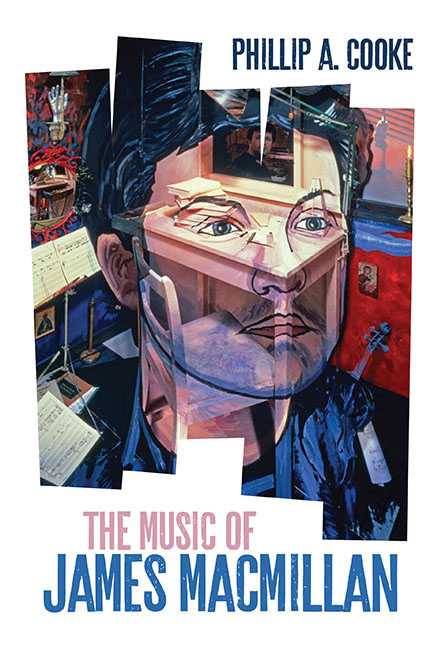Book contents
- Frontmatter
- Contents
- List of Plates
- List of Tables
- List of Music Examples
- Foreword
- Prologue
- Acknowledgements
- Permissions
- 1 The Keening – Cumnock, Edinburgh and Durham
- 2 The Tryst – Glasgow and the Road to Isobel Gowdie
- 3 Scots Songs – The Confession of Isobel Gowdie, Tuireadh and Veni, Veni, Emmanuel
- 4 A Different World – Visitatio Sepulchri, Seven Last Words from the Cross and Inés de Castro
- 5 Changed – Triduum and Quickening
- 6 Raising Sparks – ‘Scotland's Shame’, Politics and A Scotch Bestiary
- 7 A New Song – Mass and MacMillan 's Choral Renaissance
- 8 After Virtue – Symphony No. 3, The Sacrifice and the St John Passion
- 9 Serenity – Violin Concerto, Clemency and the St Luke Passion
- 10 Tu es Petrus – Bellahouston Park and the Return to Cumnock
- List of Works and Recordings
- Bibliography
- Index of Works by James MacMillan
- General Index
7 - A New Song – Mass and MacMillan 's Choral Renaissance
Published online by Cambridge University Press: 31 August 2019
- Frontmatter
- Contents
- List of Plates
- List of Tables
- List of Music Examples
- Foreword
- Prologue
- Acknowledgements
- Permissions
- 1 The Keening – Cumnock, Edinburgh and Durham
- 2 The Tryst – Glasgow and the Road to Isobel Gowdie
- 3 Scots Songs – The Confession of Isobel Gowdie, Tuireadh and Veni, Veni, Emmanuel
- 4 A Different World – Visitatio Sepulchri, Seven Last Words from the Cross and Inés de Castro
- 5 Changed – Triduum and Quickening
- 6 Raising Sparks – ‘Scotland's Shame’, Politics and A Scotch Bestiary
- 7 A New Song – Mass and MacMillan 's Choral Renaissance
- 8 After Virtue – Symphony No. 3, The Sacrifice and the St John Passion
- 9 Serenity – Violin Concerto, Clemency and the St Luke Passion
- 10 Tu es Petrus – Bellahouston Park and the Return to Cumnock
- List of Works and Recordings
- Bibliography
- Index of Works by James MacMillan
- General Index
Summary
‘I don't really regard myself as a church composer and I don't really see myself doing too much of it’ exclaimed James MacMillan in 1998, in an interview with Helen Burrows for a PhD thesis entitled ‘Choral Music and Church of England: 1970–1995’. In a chapter titled ‘James MacMillan: Tackling the Divine in Music’, MacMillan makes various statements about his disillusionment with the state of contemporary Catholic liturgical music (as he would at various points over the next two decades) and his own views on the role of the composer working in this arena. Burrows, despite being somewhat harsh on MacMillan's congregational mass settings – she refers to the ‘paucity of ideas’ in the works and bemoans the ‘self-conscious use’ of the ‘Scotch Snap’ – carries out a fair survey of his sacred choral works up to 1995 and includes substantial pieces such as Cantos Sagrados and Seven Last Words from the Cross as well as shorter anthems and motets. What is most striking about the chapter are her thoughts on the public awareness of MacMillan's sacred choral works, with Burrows asserting ‘although most of MacMillan's compositions have been critically acclaimed his sacred choral music has largely escaped attention’. She continues: ‘MacMillan's choral music has never attained the popularity of his instrumental works.’ There is more than a grain of truth to her assumptions, since as of 1998 none of MacMillan's work in this genre had achieved anywhere like the public exposure and dissemination of The Confession of Isobel Gowdie or Veni, Veni, Emmanuel, and his published choral works (both sacred and secular) at the time amounted to less than a quarter of his output. However, fast-forward ten years and choral music dominates the works MacMillan is writing, to the point where it dwarfs the orchestral and instrumental music, in number if not scope. Writing for choirs has moved from being a secondary part of the composer's oeuvre to one of his primary concerns, and shows no sign of relinquishing this position. But what exactly caused this ‘choral renaissance’ for MacMillan, what caused this resurgence in a genre that the composer did not see himself ‘doing too much of ‘? How did it move to become such an integral and substantial part of MacMillan's published work?
- Type
- Chapter
- Information
- The Music of James MacMillan , pp. 135 - 158Publisher: Boydell & BrewerPrint publication year: 2019



